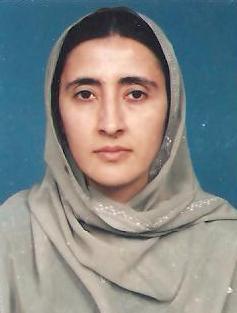This is an exceptionally confusing and exciting time in Afghanistan, and (we hope) a turning point in the history of the country. The US and the Afghan government representatives, together with civil society representatives are due to sit across the table for talks with the Taliban in Doha on April 19. For the first time, there will be women representatives in the Afghan and Taliban delegations. Fifty-four prominent and strong women’s voices are listed in the delegation from the Government of Afghanistan. It could end in a ceasefire (we hope).
The direct talks between the US government and the ‘Taliban’ leadership have up till now, completely sidelined two most important stakeholders – the Afghan people, and the democratically elected Government of Afghanistan. This calls in question the legitimacy of any deal that may have emerged, since this would be perceived as merely face-saving for the US, and an attempt to appease the Taliban’s aspirations for recognition as a power.
While the American delegation led by Ambassador Zalmay Khalilzad optimistically announces progress in the peace talks, Taliban continue their violent attacks on Afghan forces and civilians in the capital, and in various provinces. In addition to the large scale attack on Kunduz city that left multiple casualties both civilian and armed forces, recent attacks were also reported in Baghlan, Takhar and Badakhshan, as well as Faryab, Sar-e-Pul and Balkh, and in Helmand in the South. The primary aim of this violence by Taliban is to establish the spread of their power, and it has created an environment of mistrust and fear. How can people living in constant fear of violent attacks, loss of life and livelihood, perceive them as anything but aggressors?
Peace negotiations require an atmosphere of trust-building and healing, where Afghans on both sides of the conflict can humanize what was hitherto perceived as ‘the enemy’, and acknowledge the ‘other’s’ claim to an Afghan identity. This is only possible when both sides agree to listen to the other, and take into account the hopes and needs of ordinary Afghans.
The average Afghan yearns for stable and lasting peace and security in which, they can live in their own homeland with dignity, earn an honest livelihood, and ensure an education and future for their children in an environment of justice and accountability.
The women of Afghanistan have long suffered the impacts of conflict in the form of displacement, economic uncertainty, loss of loved ones, and deprivation of basic human rights and dignity. With the installation of the new Constitution and the establishment of a system of democratic governance in Afghanistan, the long and laborious process of recovery began, finally giving the women hope of a more substantive role and meaningful participation in nation building. The women of Afghanistan, as one half of the population of the Islamic Republic of Afghanistan, claim this as their right. Afghan women believe that peace will never be achieved through war and violence. There is pervasive fatigue with the ever-present threat of an all-out destructive war hanging over the heads of their children and loved ones. The women of Afghanistan understand that negotiating a lasting peace, even with those who have caused them so much physical, emotional, and psychological pain, is the only way out of this impasse. They are willing to support the much-needed peace process. Their conditions are that:
- A ceasefire is in place with immediate effect across the country until the peace negotiations reach a conclusion.
- The elected government, which represents the people of Afghanistan be accorded its legitimate place at the peace-negotiation table.
- The role and rights of Afghanistan’s women citizens should not be undermined through a peace-settlement that relegates them to the place of second-class citizens of Afghanistan, and
- Afghan women are represented in the peace negotiations.
The Afghan Women’s Network mobilized various women’s groups and individual women across the country, through a nation-wide social media campaign titled, “Our Voice for Our Future.” Women from all walks of life are using this platform to connect with each other, share concerns and news, and to raise a unified voice that will bring their concerns to the ears of the government leadership, as well as to those currently involved in peace negotiations. They are using their connections and networks in other countries to garner support for their cause, and build international pressure on the peace negotiators, to ensure that the relevance and legitimacy of the struggle of the Afghan women is preserved in any peace agreement that is achieved.
We, the women of Afghanistan, urge friends and supporters of Afghan women’s civic rights to endorse our conditions and announce their support in this critical time in our history.
Zulaikha Rafiq is an Indian-born Afghan citizen, with over three decades of work as a civil society and women’s rights activist. She currently works as an independent professional consultant, and is a champion of education as the way to peace and progress in Afghanistan. She is the Coordinator for Afghanistan of the South Asia Women’s Network (SWAN), founded in 2009 by Professor Veena Sikri.
(The paper is the author’s individual scholastic articulation. The author certifies that the article/paper is original in content, unpublished and it has not been submitted for publication/web upload elsewhere, and that the facts and figures quoted are duly referenced, as needed, and are believed to be correct). (The paper does not necessarily represent the organisational stance... More >>
Image Source: http://harvardpolitics.com/blog/wp-content/uploads/2012/04/AfghanWomen-300x187.jpg











Post new comment